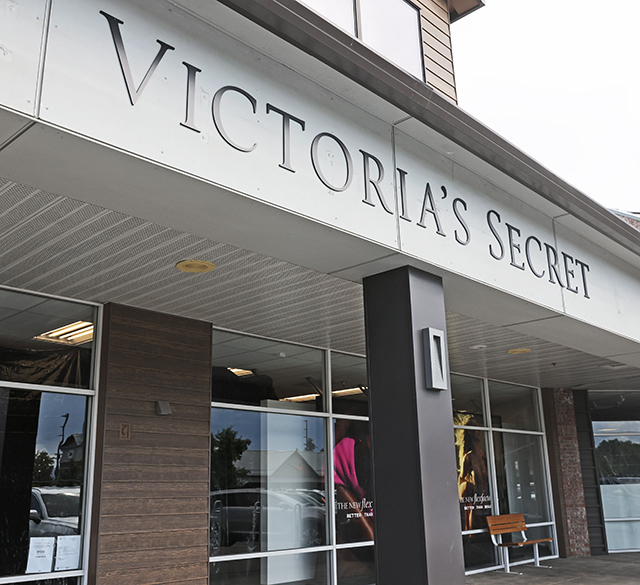Deschutes County to craft short-term rental licensing program amid slowing market
Published 5:15 am Friday, January 12, 2024

- Stock photo
Deschutes County is crafting new regulations for short-term rentals in its unincorporated areas, including destination resorts where most short-term rentals exist.
An informal decision from county commissioners Wednesday kicked off a months-long process, which will eventually include a public hearing, to evaluate short-term rentals at a time when occupancy and revenue isn’t as strong as it once was.
Trending
“We’re going to see probably a market adjustment at this point,” Commissioner Tony DeBone said at Wednesday’s meeting. “I would just acknowledge that we’re probably at the height or past the height of this kind of activity.”
Short-term rentals can include vacation rentals from popular online booking platforms like Airbnb and Vrbo, but, formally, a short-term rental in Deschutes County is any rental occupied for 30 days or less.
That includes full housing units, rooms, hotel and motel rooms, campsites, manufactured homes and condos.
Visitors spent $990 million in Deschutes County in 2022, according to state tourism data. An estimated $392.7 million of that, or about 40%, was spent on accommodations, which includes short-term rentals.
Despite high tourism revenues in 2022, officials are taking a look at short-term rentals when demand, occupancy and revenue are in decline overall in the region.
In Central Oregon, short-term rental occupancy, revenue and demand have dwindled year over year between November 2021 and November 2023, according to data from Travel Oregon, the state’s tourism arm.
Trending
However, current short-term rental occupancy rates in Central Oregon are still stronger than they were during the COVID-19 pandemic, said Katie Johnson, a spokesperson for Visit Central Oregon, the tourism agency for Crook, Deschutes and Jefferson counties.
Short-term rentals feed the local economy in the form of transient lodging taxes, which fund tourism efforts, the sheriff’s office, the Deschutes County Fair & Expo Center and other general services. Short-term rental owners pay an 8% in transient lodging taxes per stay.
For fiscal year 2023 — from July 1, 2022, to June 30, 2023 — Visit Central Oregon collected more than $12.5 million in transient lodging tax revenue from short-term rentals in unincorporated Deschutes County. That was down from about $13 million the prior fiscal year.
Because short-term rental owners pay transient lodging taxes, they’re already required to register their rentals for the county’s bookkeeping. A shift to a business license program or a land use permit process, which the commissioners could eventually consider, would change the way short-term rentals are accounted for.
Short-term rentals account for roughly 9% of unincorporated Deschutes County’s housing stock. In comparison, short-term rentals make up about 2% of Bend’s total housing stock.
Of the more than 3,200 short-term rentals in Deschutes County outside of Bend, La Pine, Redmond and Sisters, around 74% are located in destination resorts. High concentrations of short-term rentals exist in Sunriver and Black Butte Ranch, which the county classifies as historic resorts.
Bend has very few unlicensed short term rentals, new audit shows
Sunriver, which has been around for about 55 years, has a longstanding pattern of short-term rental ownership, said James Lewis, the general manager of the Sunriver Owners Association.
Lewis estimates 35-40% of Sunriver’s roughly 4,200 properties are short-term rentals. Some restrictions, including parking and noise management, already exist within the owners association’s governing documents, which apply to short-term rentals.
Lewis is supportive of a public process to evaluate short-term rental regulations in unincorporated Deschutes County, but clarity around potential changes is needed.
“If you don’t have a designed intent and purpose and measuring stick, you don’t know if they’ll be received well,” Lewis said.
Possible changes to the county’s short-term rental regulations could mean some of the following requirements:
• Wastewater system restrictions and limits on the number of people who stay in a short-term rental unit at a time.
• Fire safety standards and restrictions on fire pits and rings.
• An available property manager 24/7.
• Land use and zoning permitting that allows short-term rentals in zones that allow single-family and multifamily residences.
• Mandatory garbage services.
• Certificate of authorization through a transient lodging tax number.
• Owners might have to notify neighbors within a certain distance of their short-term rentals and offer contact information for property managers in the event of complaints or conflicts.
• Proof of insurance from the short-term rental owner.
• Quiet hours, which could apply from 10 p.m. to 7 a.m.
Bend City Council considers changes to short-term rental rules
Before Wednesday, county staff looked at short-term rental programs in Boulder County, Colorado, Placer County, California, five Oregon counties and the city of Bend for information on viable restrictions. Some had land use-focused programs; others had business licensing programs, and still others, including the city of Bend, had a mixture of both.
Commissioner Patti Adair pointed out Wednesday that of the five Oregon counties studied — Clackamas, Curry, Hood River, Lincoln and Tillamook — each had four requirements in common: mandatory garbage service, 24/7 property management, a transient lodging tax certificate of authority and on-site parking.
Following the commissioners’ interest in developing short-term rental restrictions Wednesday, a group of county staff and members of the public will now hash out a proposal for the commission, said Jen Patterson, the county’s strategic initiatives manager.








